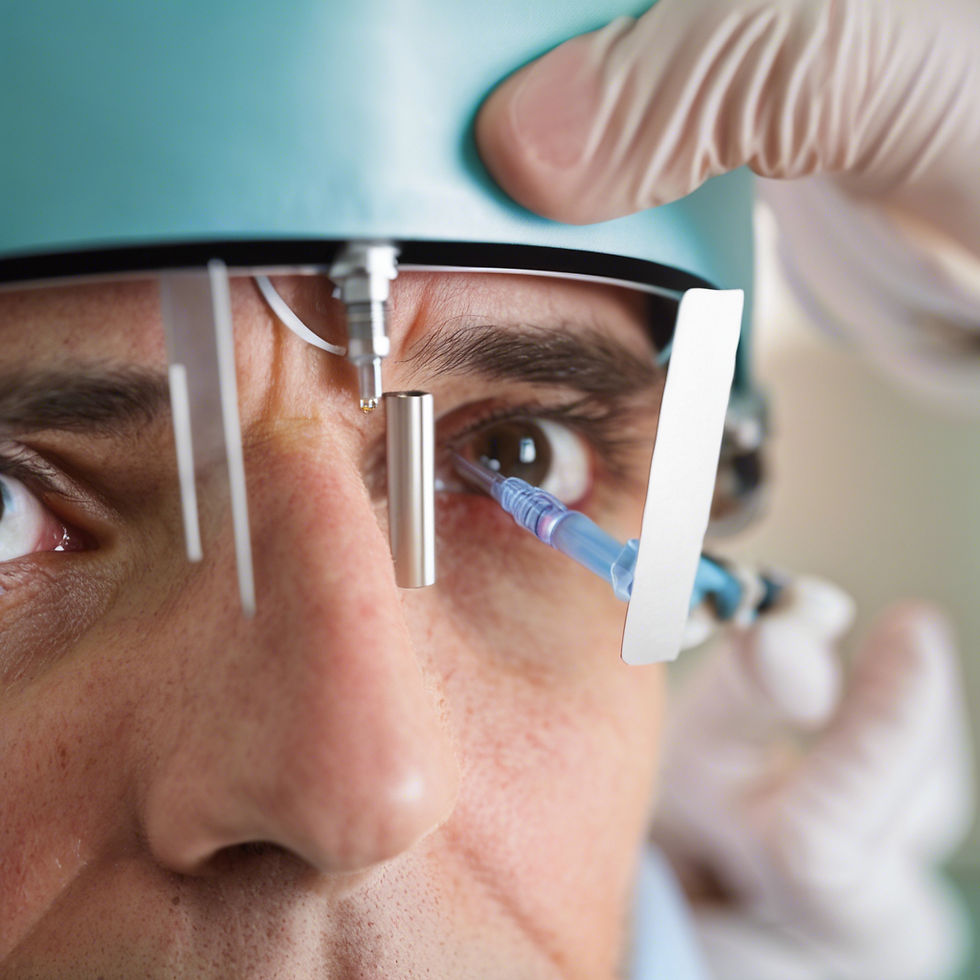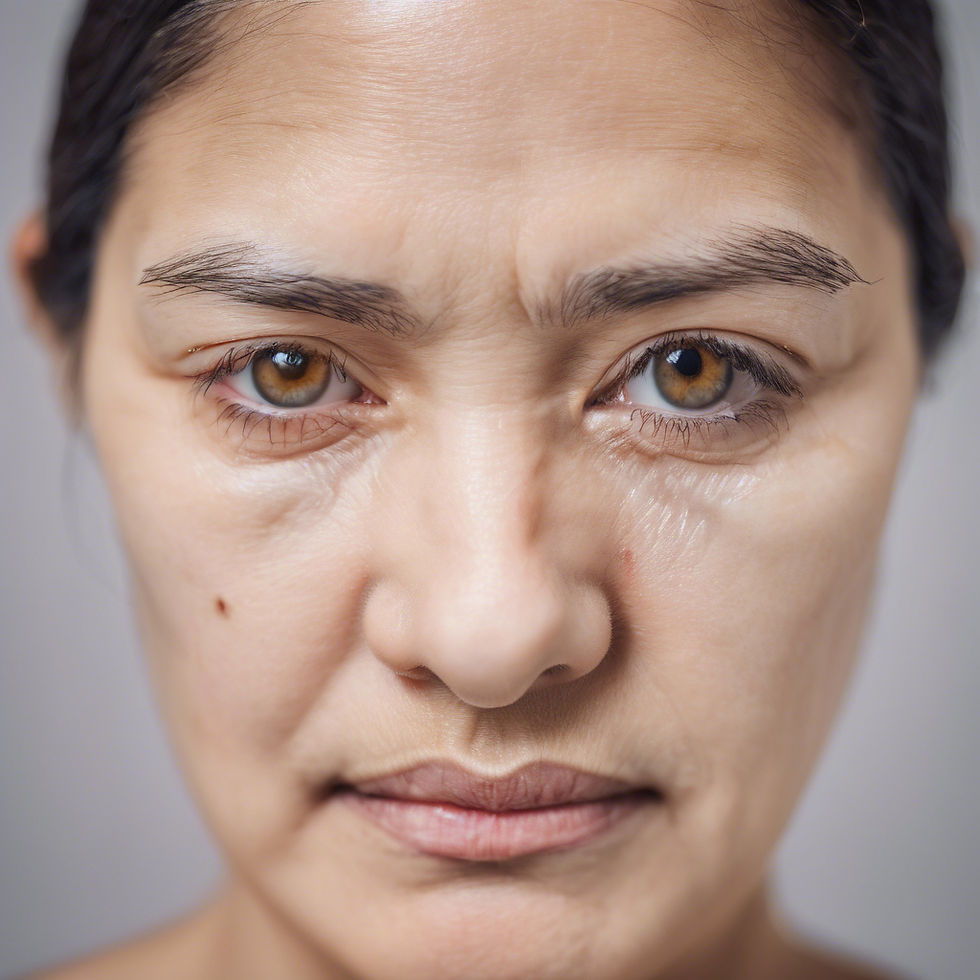Bell’s Palsy: What are the treatment options in Denver if you can’t close your eye?
- Chris Thiagarajah MD
- Feb 4, 2016
- 3 min read

One day you are minding your own business and suddenly you start having trouble with your eyelid. Your eyelid is not closing properly and on top of that, your eyebrow is drooping as well. It may be difficult to talk, to eat and to drink water. What do you do? The first thing to do is see your doctor because you could be having a stroke. Someone needs to check the rest of your body and make sure that there is no other weakness anywhere else. Let’s say you have done that and now you know you have a Bell’s palsy. What are the next steps?
Bell’s palsy is a condition where the facial nerve becomes irritated inside the bony canal in which it sits. As a result, it becomes swollen and loses function. The facial nerve is the nerve that connects from the brain to the face to control facial movement. When this swelling occurs (and we are not 100% why this happens) the nerve loses function and the face becomes weak. The good news is that 85% of patients who have a Bell’s palsy recover and 50% recover in the first month. There are three things that are critical if you are diagnosed with a Bell’s palsy to recover the nerve faster. As an oculoplastic surgeon or eyelid and facial surgery specialist in Denver, these are the key things that any Bell's or Facial Palsy patient should know.
First, it is important to see a doctor to get started on steroids and possibly antivirals. Antiviral administration for Bell’s palsy is controversial but your doctor may want you to have it.
Second, it is important to start physical therapy to recover the nerve. There are different treatments such as nerve stimulation that may be helpful.
Third, it is important to see an ophthalmologist to monitor your cornea or the dryness of your eye.
What are the treatments for Bell’s palsy until it is recovered?
First, aggressive lubrication of the eye is important. Second, there are temporary eyelid weights that can be purchased that are taped on the eyelid to help it close better. Third, Botox can be given to paralyze the eyelid temporarly to help it close better. Not all patients need these three things and most patients do well with just lubrication of the eye itself.
What happens if my Bell’s palsy doesn’t get better?
There are many options we have to help patients protect their eye and recover cosmetically. The most important first thing to do is to have an MRI or imaging of the facial nerve. In some cases, a tumor may have caused the Bell's palsy and needs to be removed. In terms of surgical options once a tumor for Bell's Palsy has been ruled out, the best in my opinion is a platinum or gold weight to the upper eyelid but here are different options.
Gold/Platinum Weight
This is a weight that is placed on the upper eyelid to help it close better. It is placed under the skin and is often not visible at all. It uses gravity to help patients eyelid close
Eyelid Spring
This is an implant that is placed in the eyelid to help it close better. I am not personally a huge fan of this device as it has often partially come out of the eyelid on its own or does not work well in my experience
Tarsorhapphy
For patients with a small amount of lagophthalmos or eyelid closure problems placing a small stitch in the corner of the eyelid can help it close as the upper eyelid edge is tied to the lower eyelid edge.
Lower Eyelid Tightening
In this procedure the lower eyelid is tightened in the corner when it droops after a Bell’s palsy. Only some Bell’s palsy patients need this procedure.
Mid face lift
This is a procedure to raise the cheek and corner of the mouth to make the face more symmetrical
Browlifting
There are several procedures to lift a sagging eyebrow. Commonly we perform this endoscopically but can also do it directly through a cut in the skin or through the top of the head
Nerve Refixation
This is where a secondary nerve is connected to the facial nerve to give it power to work. This procedure is done only by a few surgeons and only works well in experienced hands.
This is a summary of treatment for Bell’s Palsy in Denver. As an oculoplastic surgeon and neuro-ophthalmologist I am uniquely trained to treat this disease and have an interest in it as a neurological disease that can cause a cosmetic problem.




Comments